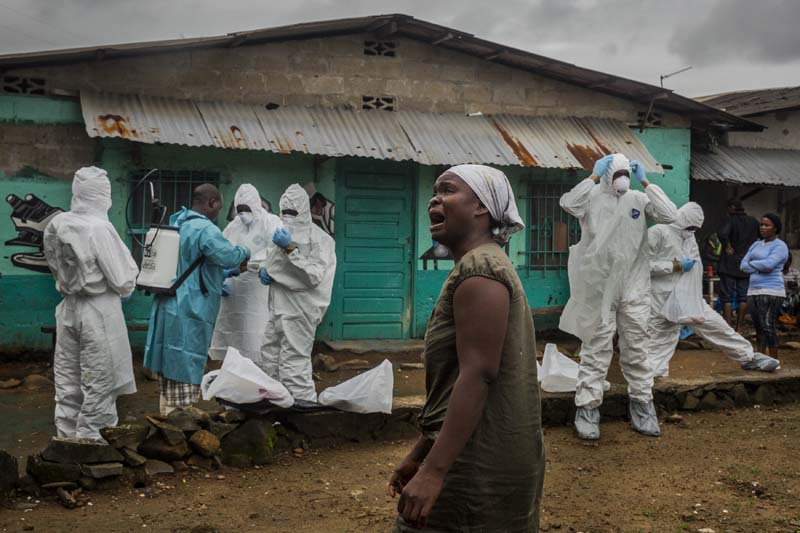|
|

|
|

|
First Place
Daniel Berehulak
Getty Images Reportage for The New York Times
1
2
3
4
5
6
7
8
9
10
11
12
13
14
15
16
17
18
19
20
21
22
23
24
25
26
27
28
29
30
31
32
33
34
35
36
37
38
39
40
41
42
43
44
45
46
47
48
49
50
MONROVIA, LIBERIA - SEPTEMBER 18, 2014: A relative grieves as a Liberian Red Cross burial team, dress themselves in full protective clothing, prior to removing the body of a suspected Ebola victim, Ofori Gweah, 62, on September 18, 2014 in central Monrovia, Liberia. Members of the burial team descended to the compound four times in the past four weeks, down a steep cliff to a riverside area here called Rockspring Valley. Each week, they had picked up a body that passed on the Ebola virus to the next person, and now they were back for the fifth. The crowd, seething beneath a sky of low clouds, erupted in anger.The family of the dead man, sick for six days with the hemorrhagic fever’s telltale symptoms, had taken him twice by taxi to treatment centers, only to be turned back at the gate for lack of beds. He died in his own bed, his arms thrashing violently and blood spewing out of his mouth, in front of his sons. “The only thing the government can do is come for bodies — they are killing us,” said Eric Gweah, 25. Another son, Marvin Gweah, 28, screamed, “If the government can't work it out, let them give it up. Let the international community handle this.”
|
|
|



